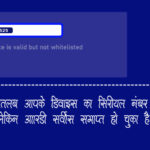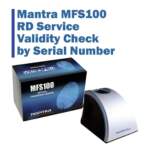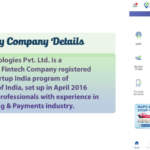Different Types of Recurring Deposit Accounts
When it comes to saving money, individuals have a multitude of options to choose from. One such option that offers flexibility and a disciplined approach to savings is the Recurring Deposit (RD) account. RDs not only encourage regular contributions but also provide a secure and predictable way to earn interest on your savings. In this article, we’ll dive into the world of RDs and explore the various types of recurring deposit accounts available, each catering to different financial needs and goals.
Regular Recurring Deposit Account
The regular RD account is the most common type of recurring deposit offered by banks and financial institutions. This type of account is suitable for individuals looking for a straightforward savings option with a fixed monthly contribution and a predetermined interest rate. Here’s how it works:
- Fixed Monthly Deposit: In a regular RD account, you commit to depositing a fixed amount of money every month for a predetermined period, which can range from 6 months to 10 years.
- Interest Calculation: The interest on regular RDs is typically compounded quarterly. It’s important to note that while the interest rate is usually higher than that of a regular savings account, it may be lower than other types of deposits due to the flexibility and predictability of the RD.
- Maturity Amount: At the end of the tenure, the sum of all your monthly deposits, along with the compounded interest, is paid out as the maturity amount.
Related Articles
Flexi Recurring Deposit Account
A Flexi RD account offers more flexibility in terms of the monthly contribution amount. This type of account is designed for individuals whose financial capacity to save varies from month to month. Here’s how it differs from a regular RD:
- Variable Monthly Deposit: Unlike a regular RD, where the monthly contribution is fixed, a Flexi RD allows you to deposit varying amounts each month, as long as the total contribution by the end of the tenure meets the account’s requirements.
- Interest Calculation: Similar to regular RDs, interest on a Flexi RD is compounded quarterly. However, the total interest earned might vary due to the changing monthly deposits.
- Maturity Amount: The maturity amount is calculated based on the total sum of deposits made throughout the tenure, along with the compounded interest.
Senior Citizen Recurring Deposit Account
Designed to cater specifically to senior citizens, this type of RD account offers enhanced benefits to individuals above a certain age (usually 60 or 65). Senior citizen RDs provide attractive interest rates and additional perks to those in their retirement years:
- Higher Interest Rates: Senior citizens are often offered higher interest rates compared to regular RDs. This serves as a way to provide them with better returns on their savings during their retirement phase.
- Customized Tenure: Some banks might offer flexible tenure options for senior citizens, considering their unique financial needs and goals.
- Additional Benefits: In addition to higher interest rates, some banks might offer features like discounted medical insurance or priority banking services to senior citizen RD account holders.
NRI Recurring Deposit Account
Non-Residential Indians (NRIs) often have specific financial requirements when it comes to saving and investing in their home country. NRI RD accounts cater to the unique needs of NRIs:
- Foreign Currency Deposits: NRI RDs allow individuals to make deposits in foreign currency, which can be advantageous for those who earn in foreign currencies and want to save in their home country.
- Higher Returns: NRI RDs might offer competitive interest rates to attract NRIs to invest their funds in India.
- Tax Implications: NRIs should be aware of the tax implications of their investments in India. The interest earned on NRI RDs is subject to taxation according to prevailing laws.
Variable Recurring Deposit Account
A Variable RD account combines the features of both a regular RD and a fixed deposit. It is ideal for those who want to take advantage of fluctuating interest rates. Here’s how it works:
- Variable Interest Rates: Unlike regular RDs, where the interest rate remains constant throughout the tenure, variable RDs have a fluctuating interest rate that is linked to prevailing market conditions.
- Interest Reset: The interest rate on a variable RD is typically reset periodically, which means that it can change at predetermined intervals, providing the opportunity to earn potentially higher returns if market interest rates rise.
- Maturity Amount: The maturity amount is calculated based on the varying monthly contributions and the changing interest rates throughout the tenure.
Conclusion
Recurring Deposit accounts come in various forms, each tailored to meet specific financial needs and preferences. Whether you’re seeking a fixed, regular savings plan or a more flexible option that adjusts to your varying financial capacities, there’s likely an RD account that suits your requirements. When choosing the right type of RD, consider your financial goals, risk tolerance, and the features offered by different banks and financial institutions. Remember that while RDs are a secure and disciplined way to save, it’s crucial to evaluate your options and seek advice from financial experts to ensure that your chosen RD aligns with your long-term financial objectives.














